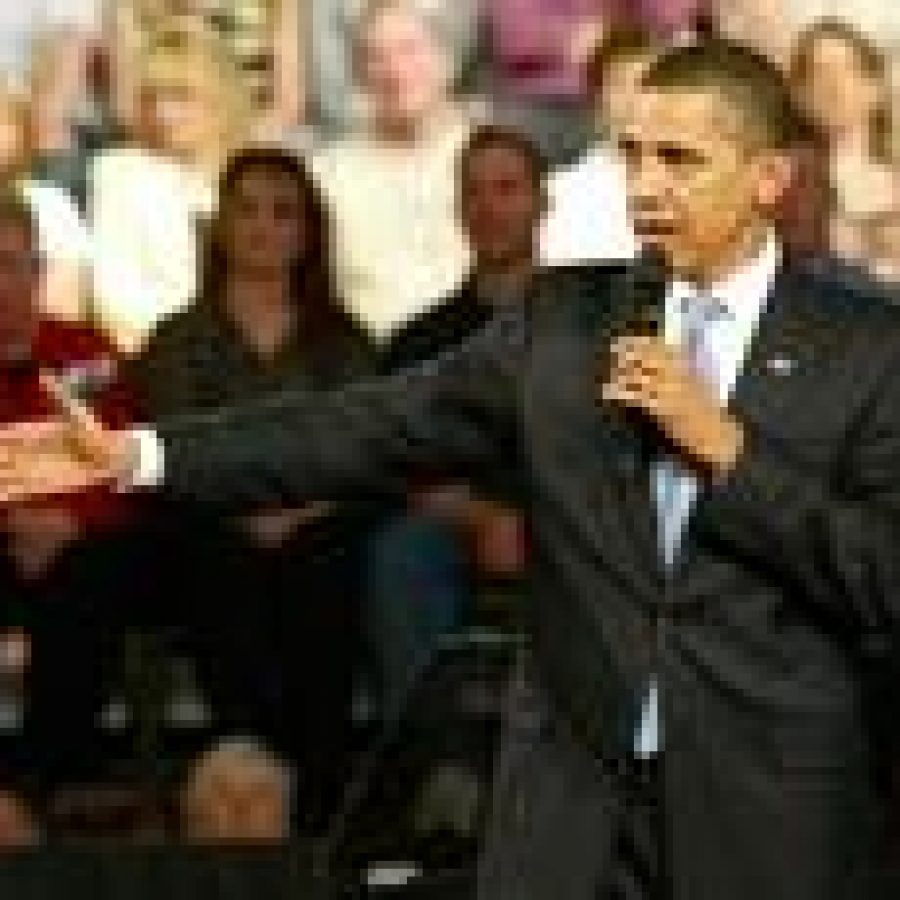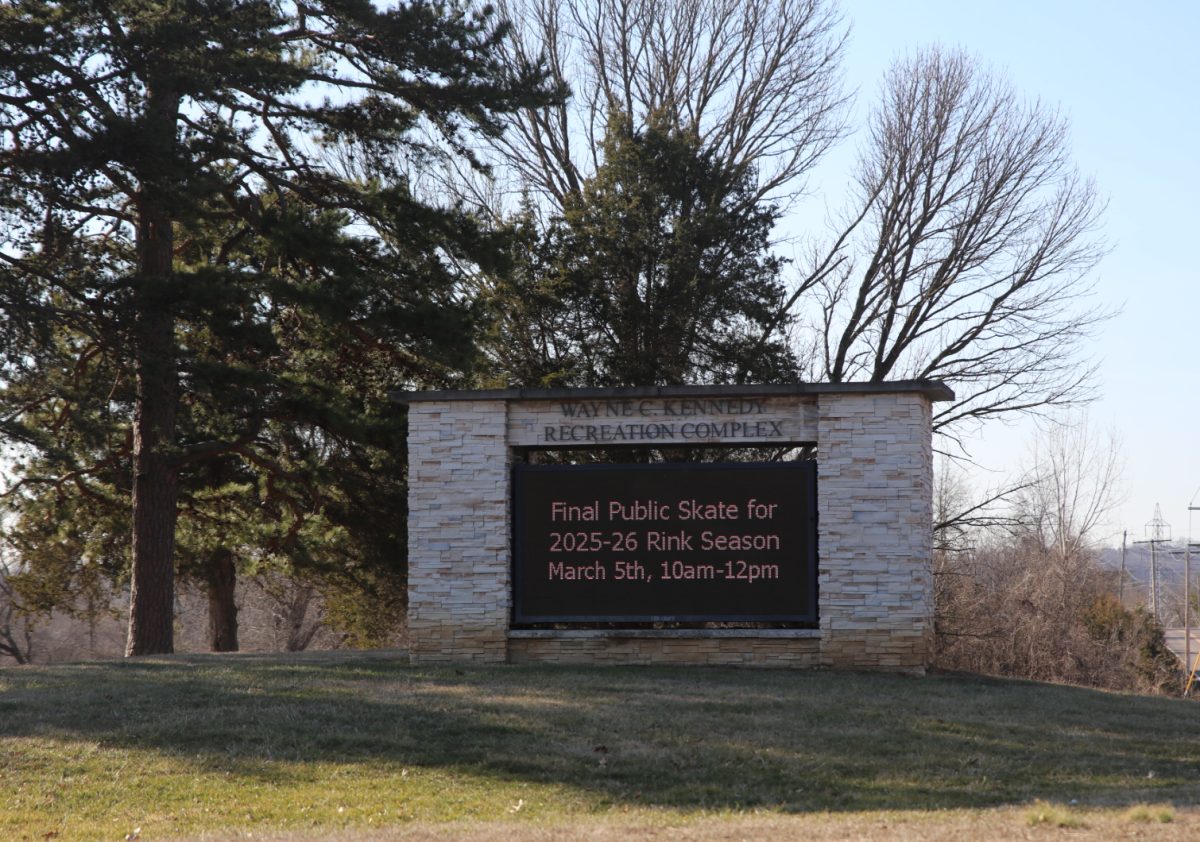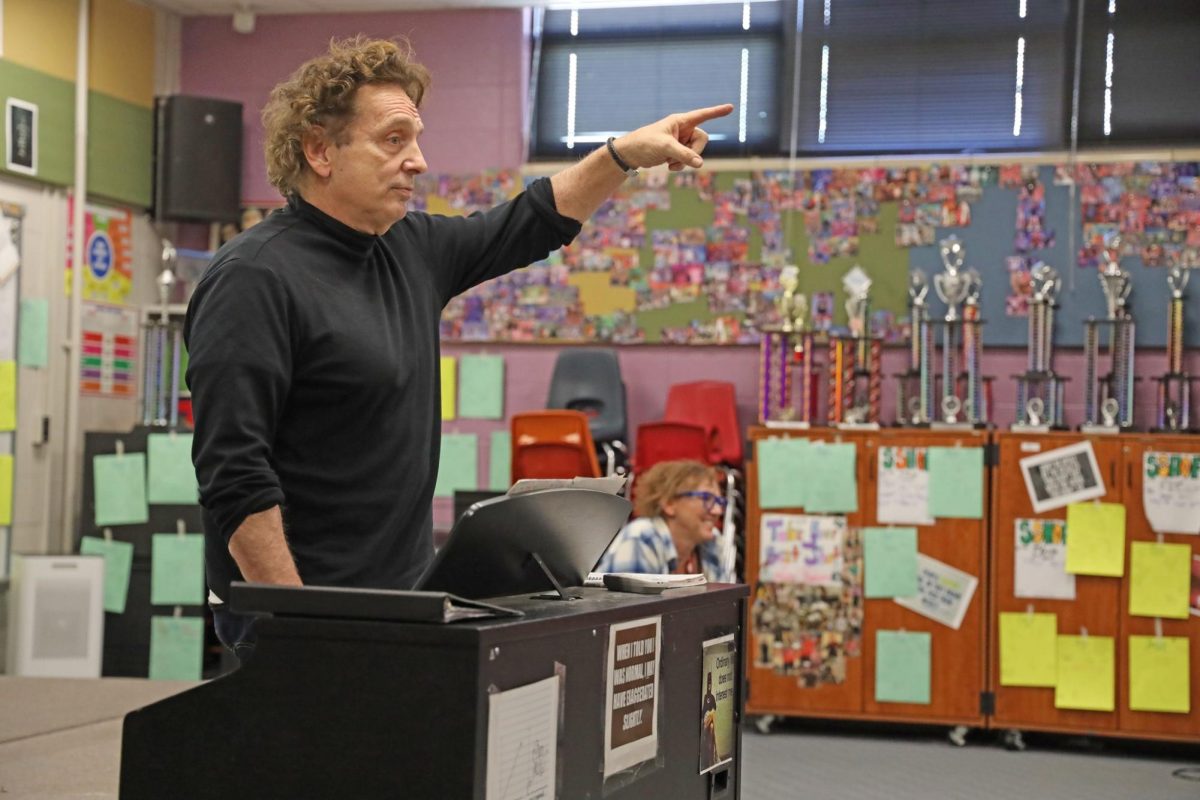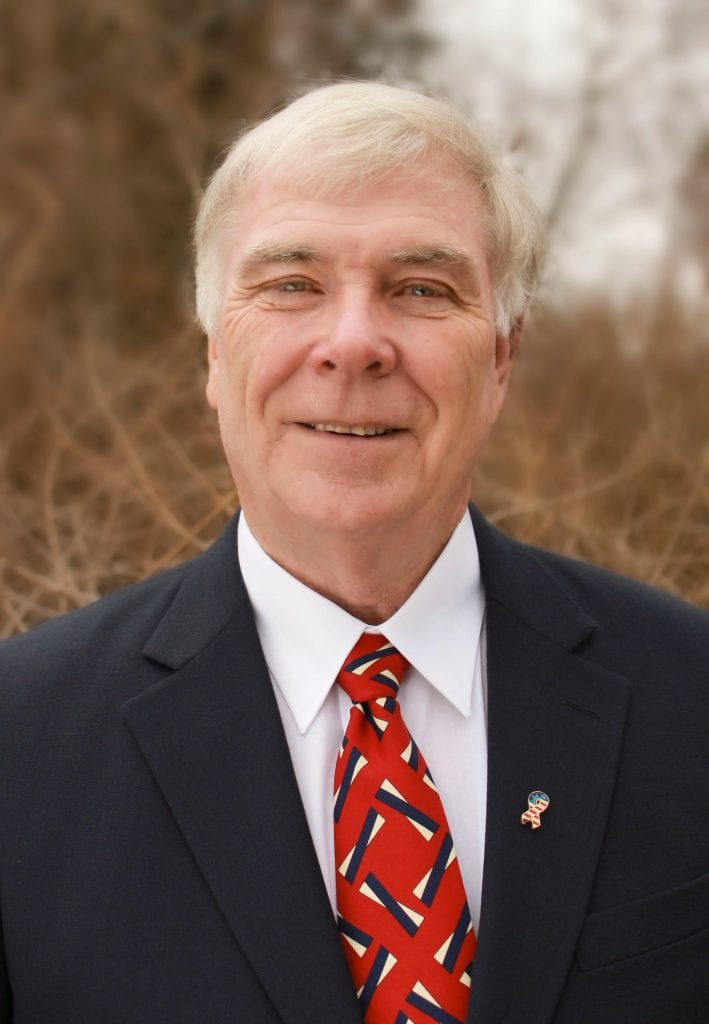While “Tea Party” protesters attacked President Barack Obama’s economic policies outside Fox Senior High School in Arnold, the crowd inside the school gym roared with applause.
The nation’s 44th president last week marked his 100th day in office on April 29 before a crowd of more than 1,500 in a town-hall-style meeting.
After assessing his first 100 days as the beginning of a long road to recovery, he took questions from the audience for more than an hour as well as responded to “Tea Party” criticism over his economic policies.
Obama said if opponents of his $787 billion stimulus plan want to cut the nation’s deficit, they should support reforms to cut health-care costs.
“I know you’ve been hearing all these arguments about ‘Oh, Obama’s spending crazy. Look at these huge trillion-dollar deficits, blah, blah, blah,'” he said. “Let me make a point. Number one, we inherited a $1.3 trillion deficit. That wasn’t me.
“Number two, there is almost uniform consensus among economists that in the middle of the biggest financial crisis since the Great Depression, we have to take extraordinary steps. So you’ve got a lot of Republicans in Congress who agree that we had to do a stimulus package and we had to do something about the banks. Those are one-time charges and they’re big and they’ll make our deficits go up over the next two years.
“But those aren’t the problems that we face long term. What we face long term, the biggest problem we have is that Medicare and Medicaid healthcare costs are skyrocketing. And at the same time, the population’s getting older, which means we’re using more health care. You combine those two things and if we aren’t careful, health care will consume so much of our budget that ultimately we won’t be able to do anything else … That’s the problem. That’s why I’ve said we’ve got to have health reform this year to drive down costs and make health care affordable for American families, businesses and for our government.
“… When you see those of you are watching news channels on which I’m not very popular and you see folks waving tea bags around, let me just remind them that I am happy to have a serious conversation about how we’re going to cut our health-care costs over the long term and how we’re going to stabilize Social Security …
“Let’s not play games and pretend that the reason is because of the recovery act. That’s just a fraction of the overall problem that we’ve got.”
The president also took time to answer 9-year-old Arnold resident Laurel Bonebrake’s question: “How is your administration planning to be more environmentally friendly?”
After Obama told Bonebrake: “We might have to run you for president some day,” he encouraged the audience to take a less complacent view of global environmental issues.
“The average person probably thinks: ‘Yes, climate change, that’s kind of a drag, but it’s not one of my top priorities,'” Obama said. “Because you don’t really see it or feel it. It doesn’t hit your pocketbook. It doesn’t have to do with your job directly. And so the tendency is just to kind of push it off. People think: ‘Well, this just has to do with polar bears. And I feel bad about polar bears, but I’ve got other things to worry about.’
“I don’t think people fully appreciate the potential damage — economic damage as well as environmental damage — that could be done if we are not serious in dealing with this problem. If the temperature goes up a couple of degrees, well, it will change weather patterns pretty significantly. It could create droughts in places where we haven’t had drought. It could bring insect-born diseases up into places like Missouri that we haven’t seen before … If the temperature of the planet goes up 5 degrees, you’re now looking at coastlines underwater. You’re now looking at huge, cataclysmic hurricanes, complete changes in weather patterns … Our economy would be disrupted by tens of trillions of dollars. So this is no joke.”
Brenda Hudspeth, a counselor at Fox’s Simpson Elementary School, asked the president, “What do you feel is the biggest challenge facing our educational system today and how do you plan on meeting those challenges?”
The president replied that while there are too many educational challenges to narrow down to one, he believes that students’ performance in math and science should be improved to compete with nations like China and India and better teacher recruitment and training need to be done.
Obama also said that emphasizing educational value to youth is ultimately not up to the government, but to parents.
“It’s not just making sure your kids are doing their homework,” Obama said. “It’s also instilling a thirst for knowledge and excellence. It’s been noted widely that there are a lot of immigrant students who come from very modest backgrounds economically that end up doing very well. And why is that? Well, the difference is that in their families and in their communities a lot of times, they’ve got that attitude that used to be prevalent, but sometimes we’re losing … And that is, it is a privilege to learn. It’s a privilege to discover new things. It’s cool to be smart. We want to reward kids for doing well in school.
“And the community can help the parents. Listen, I love basketball. But the smartest kid in the school, the National Science Award winner should be getting as much attention as the basketball star. That’s a change that we’ve got to initiate in our community.”
And in response to a question on how his administration will handle economic woes in the auto industry, Obama said while he may not agree with companies’ plans, he would aim to protect auto workers.
“The Bush administration had already given several billions of dollars worth of aid, and GM and Chrysler were told to come up with a plan,” Obama said. “When they presented the plan to us, my responsibility to taxpayers is to look at those plans in a realistic way and figure are these plans going to work in order to put these auto companies on a firm, solid footing where they can operate without government subsidies and succeed and compete in the marketplace …
“Unfortunately, the plans that they presented just weren’t realistic … What they were doing wasn’t painting a picture of how they could be viable over the long term … Frankly, there’s no way that we were going to get taxpayers to just, every few months, just give a few more billion dollars because there are a lot of other industries that would love to have those kinds of subsidies.
“I can tell you that no matter what happens, we want to provide certain protections to retirees for their health care and their pensions. That will also be expensive for taxpayers. But my attitude is we got here not because our workers didn’t do a great job trying to build a great product. It was because management decisions betrayed workers.”









